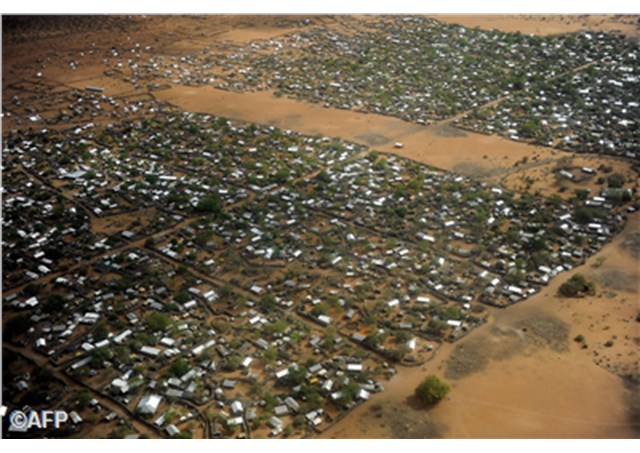
Garissa Catholic Bishop backs closing Dadaab camp in Kenya

The Bishop of Garissa, Paul Darmanin says that moving Dadaab Refugee Camp back to Somalia must go hand in hand with allocating more resources to Northern Kenya for it to succeed.
The Garissa Bishop, whose jurisdiction covers Dadaab, warns that an Islamic state situation is unfolding in Garissa as many refugees have already settled down and are more well off and comfortable than even career civil servants working in the area.
“Now that there is a government in Somalia, it is good if the camp is closed and the people are allowed to return back home,” said Bishop Darmanin. Speaking in Rome on the sidelines of the Kenyan Bishops ad limina visit to the Vatican. Bishop Darmanin said the systematic marginalisation of local communities in the region was generating a sense of resentment against refugees and that relocating the camp must go hand in hand with allocating more resources to develop the region.
Dadaab said to be the largest refugee camp in the world - was opened in 1991 after
the collapse of the Somali Government. The camp has attracted attention following
the April 2 2015 terror attack on Garissa University College that left 148 people
dead and scores of others injured.
The Kenyan Government has requested the United Nations to repatriate Somali refugees
from the refugee camp by July saying it has become the springboard for terror attacks
in the country. United Nations Tuesday told Kenyan authorities that closing the world's
biggest refugee camp would bring about "extreme humanitarian and practical consequences”
and that it would violate international law.
Bishop Darmanin says relocating the camp will only become useful if it is accompanied
by deliberate efforts by both the National and County Governments to develop the Garissa
region and if there are guarantees that refugees will continue to receive humanitarian
assistance after relocation.
“While the state of insecurity in Somalia is not very good, it is important to note
that the most recent attacks in that country are targeted at Government Officials
and institutions and not civilians. It is better if these people return home and get
assistance from there,” he said.
Bishop Darmanin said he cannot rule out the link between the camp and terrorism, saying
most of the Somali refugees inside the camp still maintained close links with relatives,
friends and clansmen across the border in Somalia.
“The nature of our society is to protect family and friend. The people in the camps
cannot report dangerous criminals among them because they are family. While the closure
(of the camp) may not end terror attacks, it will see a reduction in the channels
for recruitments and planning of attacks,” he said.
The Government, the bishop said, must address the delicate relationship between the
Kenyan Somali community and Somali refugees. Thanks to systematic isolation of the
region over the decades, he said, many Kenyan Somali in Garissa are poorer than the
Somali refugees in the camp.
“Many Kenyan Somalis have registered in the refugee camp and go there regularly to
get food rations and other disbursements, this is dangerous,” he said.
(Kenya Catholic Mirror in Rome)
e-mail: engafrica@vatiradio.va
| All the contents on this site are copyrighted ©. |


